In a bid to represent the postgraduate student body on the governance board of Hong Kong’s top university this year, one candidate says he is fighting for academic freedom, and independence from the control of the government.
University of Hong Kong law student and human rights activist Michael Mo Kwan-tai has launched a high-profile campaign against his three opponents, including the incumbent postgraduate representative for the HKU Council Printa Zhu Ke. Both Mo and Zhu spoke to HKFP about their views on university governance, and the role of politics in tertiary education.

The HKU Council controversy
Mo’s campaign is a response to a series of controversial events relating to the university’s governing body. The HKU Council first came under the spotlight in July last year after upholding a decision to delay the appointment of former law dean Johannes Chan Man-mun to pro-vice-chancellor amid a chaotic protest led by HKU’s Student Union. Chan’s appointment was rejected in a 12:8 vote two months later, but apparently on questionable grounds such as Chan’s lack of a doctoral degree.
The decision was criticised as being politically motivated, targeting the liberal-leaning scholar and his colleague Benny Tai Yiu-ting, who organised a civil disobedience campaign which led to the 2014 pro-democracy Occupy protests.
In December last year, Chief Executive Leung Chun-ying, HKU’s chancellor by law, appointed his ally Arthur Li Kwok-cheung to become Council chairman amid strong opposition. Li was a Council member prior to the appointment.
Students have been demanding that Hong Kong’s leader refrain from interfering in university affairs, and calling for amendments to the HKU Ordinance which stipulates that the chancellor is the chief executive by default and he can appoint nearly one-third of the 20 Council members.

Academic independence
Against this backdrop, Mo said he hopes to change the membership structure of the Council and defend the university from outside political influence.
A Master of Laws student in Human Rights, Mo is also a campaigner at Amnesty International and a social justice activist. He said one of his goals of becoming a Council member is to work with students from other schools to abolish the law that makes the chief executive the chancellor of ten universities in Hong Kong.
“The chief executive’s power of appointing governing board members effectively tramples on universities’ independence,” said Mo.
“The authorities said the law is necessary because HKU and other universities are publicly funded and hence answerable to the government,” he added. “But in the case of many other government-funded bodies, the government simply appoints the chairs and asks them to report to the chief executive and that’s all.”
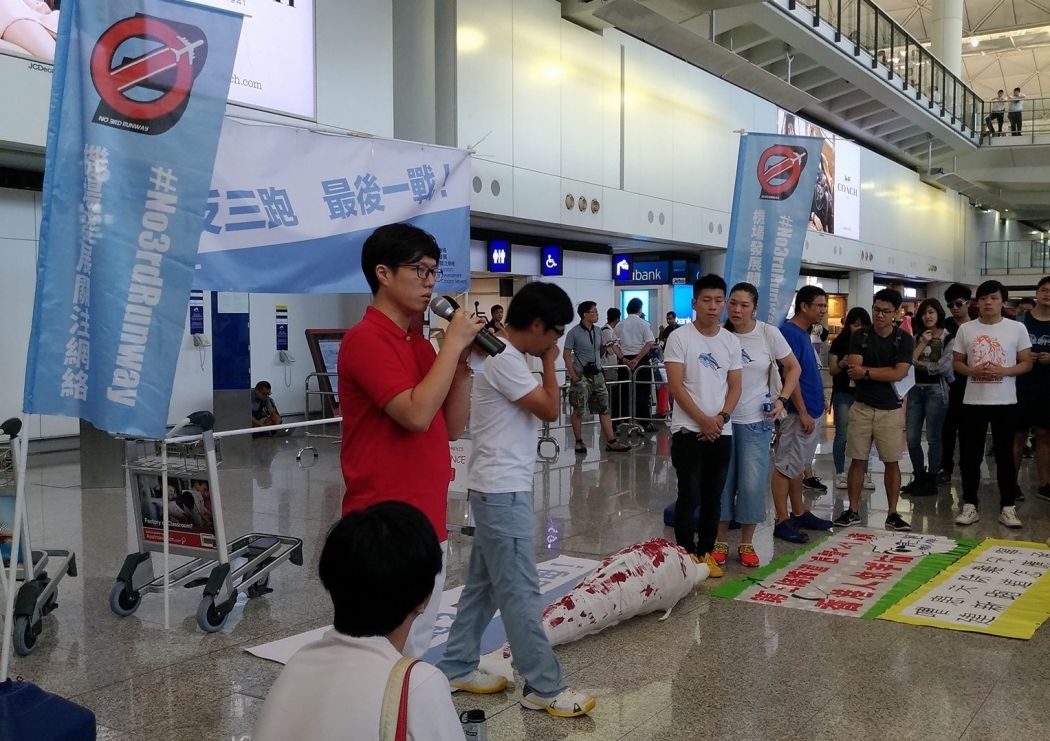
Zhu, whose term on the HKU Council ends at the end of this month, said he does not oppose the chancellor policy, but he thinks that the chancellor’s power should be regulated and supervised.
Zhu said in April that he was pleased to see the establishment of a 3-person task force to review the governance structure of the HKU Council, including the HKU Ordinance. However, local media reported at the time that the task force did not specify whether it would review the students’ demands of abolishing the chief executive’s power as the chancellor and increasing the ratio of elected campus members to outside members on the Council.
Open campus policy
Besides academic freedom, Mo is also concerned about the freedom of expression on the HKU campus. The activist said he would like to ensure HKU’s longstanding “open campus policy” will continue – a policy that permits members of the public to access certain areas on campus, including attending public assemblies held at HKU.
He said there are rumors that the HKU Council has plans to change the policy, so that the public can no longer attend events at HKU. The plan may be a response to previous protests against the HKU Council that led to clashes and the involvement of police.
“By tightening the open campus policy, the university can then take away freedom of expression by throwing out guests whom it deems to be unwelcome,” said Mo.

Confidentiality policy
Zhu declined to comment on the controversy surrounding the appointment of Johannes Chan, the former law faculty dean, citing confidentiality rules.
Last August, the Council revised and tightened the rules in its code of practice, including restricting members from speaking to the public about any of its meetings. A month later, Billy Fung Jing-en, former Student Union president and undergraduate representative for the HKU Council, leaked the content of the Council’s meetings on Chan’s appointment, leading to condemnation by some Council members.
Mo criticised the revised policy for being unnecessary. “The move is obviously to suppress freedom of expression. I strongly disagree with the new rules and will demand the Council at least reverse the policy, which used to be only an undertaking and rely on the good faith of the members,” said Mo. “This is to protect the rights of the HKU community.”
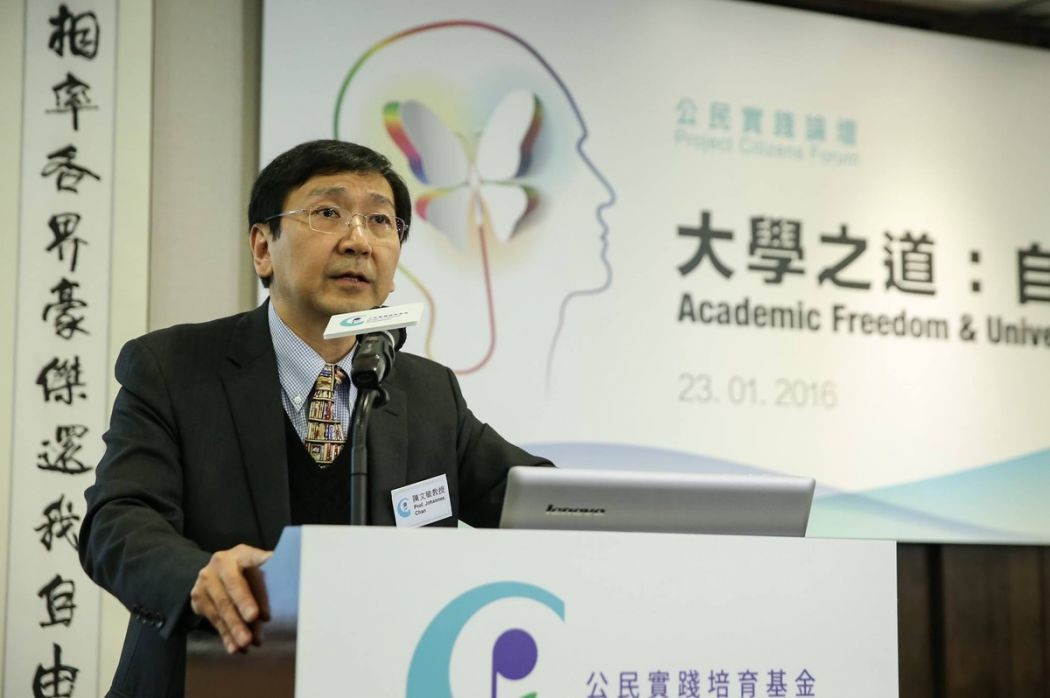
Council governance structure
Although Zhu said he could not comment on the Chan debacle, he wrote on Facebook in January that the appointment of pro-government figure Li to the Council chairman would likely result in “a period of turmoil,” but he hoped that the chairman would defend HKU traditions and academic freedom.
He was optimistic about the resilience of the HKU administration. “The Council does not make decisions based on any one person’s subjective opinion,” he wrote. “The future of HKU depends on the participation of every stakeholder. As the postgraduate representative, I follow the incident closely and hope to have more dialogue [with the student body].”
Zhu added that it is not necessary to increase the number of student representatives on the Council on the basis that “one student for each level is enough to consult and represent the voices of the student body” and that more than one representative would make their roles “redundant.”
Mo, disagreeing with Zhu, said that Council members need to read many documents and only one student representative is not enough to handle the workload. “Students are the majority in any school. How can there only be two students speaking for HKU’s 20,000-plus students – are you kidding me?” Mo said. “It is illogical to have only two students on the Council.”
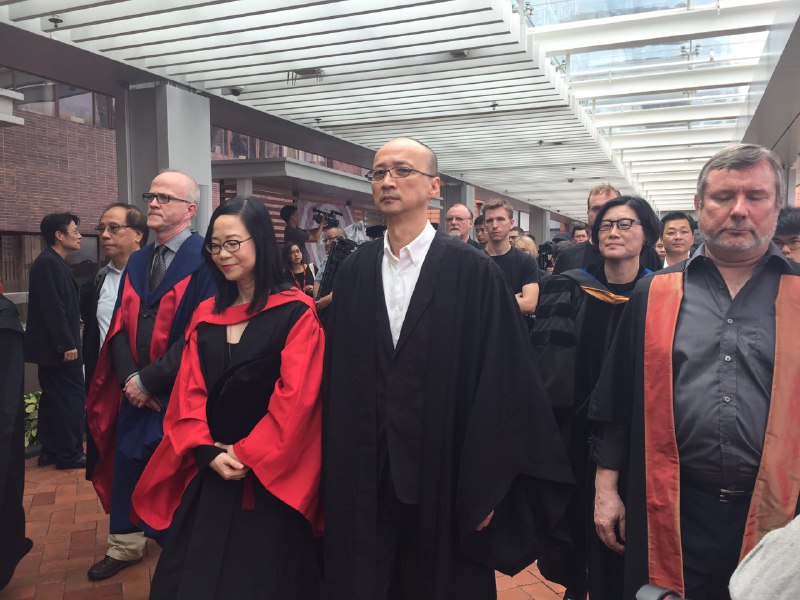
Academic development
The two candidates differ most in their views of HKU’s role as a tertiary education institution.
To Zhu, an engineering student in his fourth year at HKU, universities are about intellectual pursuits. “HKU should focus more on academic development, seeing that its ranking has dropped over the last five years,” said Zhu. “The drop is owed to inadequate research output, causing HKU to be outcompeted.”
He said a pressing issue for the school is to rebuild its image, as it is now seen as being politicised “following political events such as the rejection of Chan’s appointment and protests during Premier Li Keqiang’s visit to HKU.”
“Some overseas scholars told me that they think the environment at HKU is not peaceful,” he said. “The university needs to work on attracting scholars such as by promoting cooperation with schools abroad.”
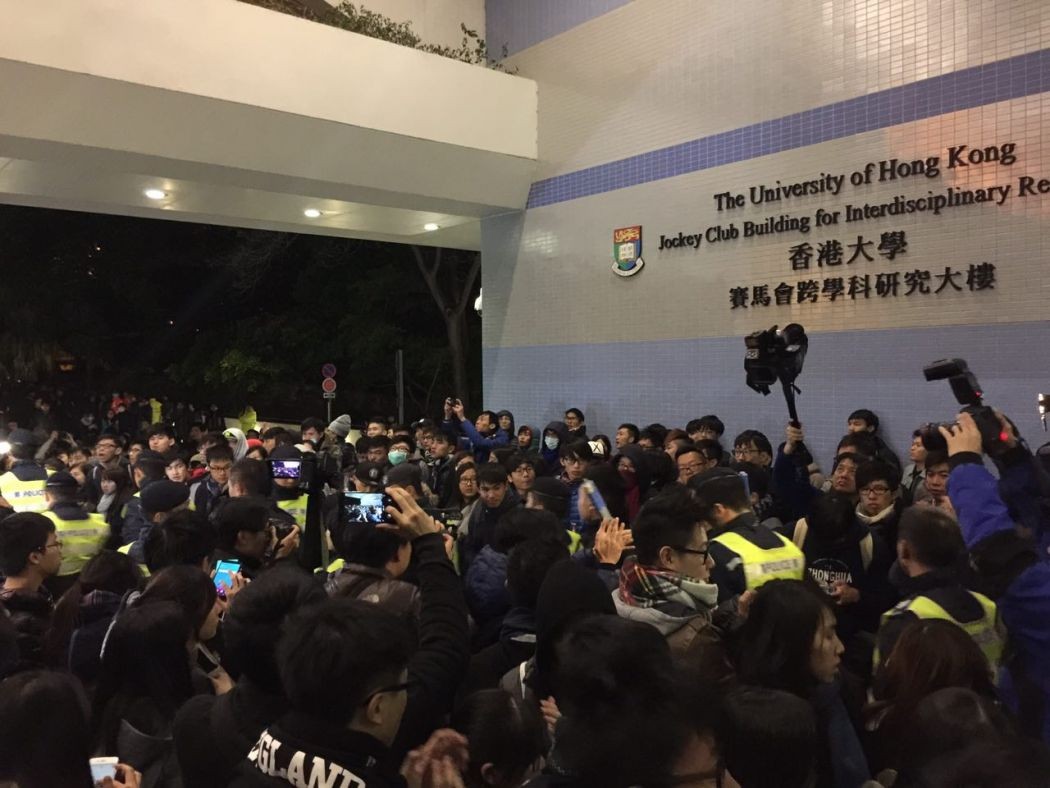
Student wellbeing
One of Zhu’s goals of serving on the Council again is to fight for more benefits for postgraduate students, including increasing the number of scholarships available. “The numbers of students in both levels are about the same, around 10,000 each, but there are 293 scholarships for undergraduate students compared to only 136 for postgraduates,” he said.
He also wants the school to set up a suicide prevention programme following the suicide of a classmate. “Many overseas postgraduate students face housing problems which can lead to psychological problems. But there is no centralised body to manage the psychological well-being of students.”
In addition, Zhu hopes to “increase the internationalisation” of HKU and promote intercultural understanding among local, mainland Chinese and international students. Zhu, a mainland student, was attacked by some pro-democracy supporters based on his background last year when he ran for the postgraduate representative position.
He said he wasn’t bothered by attacks against him. “As the representative, I’m first and foremost a HKU student. I’m doing this for HKU, not for myself. I’m fine with criticism – fairness will prevail in the end.”
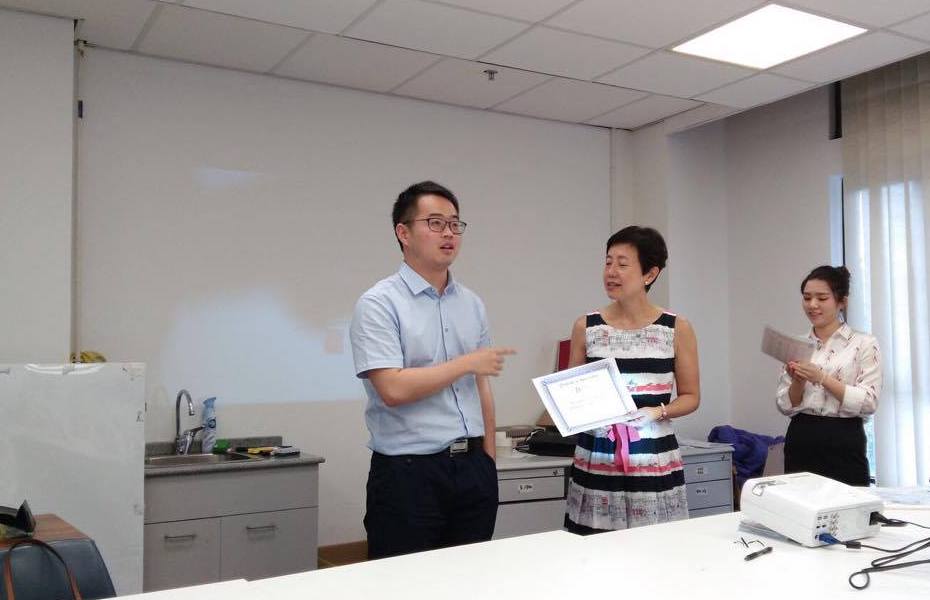
Watchdog of school governance
But Mo countered that Zhu “puts the cart before the horse” and avoids the core of the problem, which is the corrosion of HKU governance owing to political interference.
He said if scholarships are so important to Zhu, he should put more effort into ensuring the Council manages the account of the HKU-Shenzhen Hospital. “The school injects HK$15 million into the hospital every month, totalling HK$0.6 billion so far. The resources put in the hospital could be rechanneled to create enough scholarships.”
Zhu said that the Council has reviewed the hospital’s funding issues, but Mo said the Council is not doing enough. “Only a very general account is publicly available, and we don’t know the specifics of the expenses.”
Mo added that the drop in HKU’s ranking is due to the funding allocation system that shifts away from research, and that HKU has a leading suicide prevention research centre with “concrete research and campaigns targeting the HKU community.” He said the problem is a lack of student awareness about the availability of existing resources, not a lack of them.
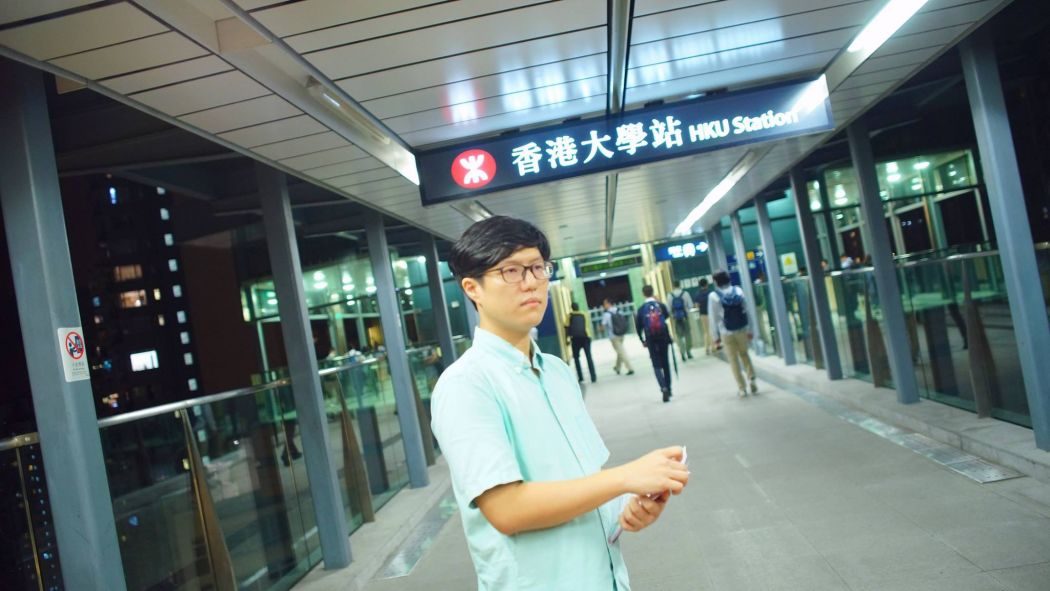
But more importantly, Mo said, “the Council is more than just about small benefits for students. The role of the student representative is to serve as a watchdog of school governance.”
“Zhu doesn’t understand his role on the Council,” he added.
On politics and Hong Kong independence
Mo said it is necessary to bring up the issue of Hong Kong independence as the territory is facing the “2047 issue” that will affect the way of living and private property of people in Hong Kong. The city’s mini-constitution stipulates that the way of life of Hong Kong will last for 50 years, or until 2047.
Mo thinks that Hong Kong independence is not impossible. “Hong Kong shouldn’t underestimate its role as a funnel for cash laundering by the Chinese and other governments. It is in a strategic position and has a lot of bargaining power.”
On the other hand, Zhu said that he respects freedom of speech, but people should take responsibility for their actions.
He added that, having spent a semester in Taiwan as an exchange student, he appreciates the cultural differences between mainland China, Hong Kong and Taiwan.

“But we are all Chinese people. If we combine the strengths of the three territories, we can promote the development of the Chinese nation (zhonghua minzu) and hopefully we as a people will become stronger,” said Zhu.
Asked if he had participated in the 2014 Occupy protests, Zhu said he had “passed through” the site and was impressed by the “wisdom and talents” of Hongkongers. He said he did not participate in the protests because he was new to the city, having only been around for two years at the time.
“It is important for non-local students to also understand the culture and issues of the place they are living,” Zhu said.
Zhu did not answer directly as to whether he has taken part in any protests in Hong Kong. He said he learns about Hong Kong’s social issues through volunteer events, such as trail maintenance and visits to elderly homes.
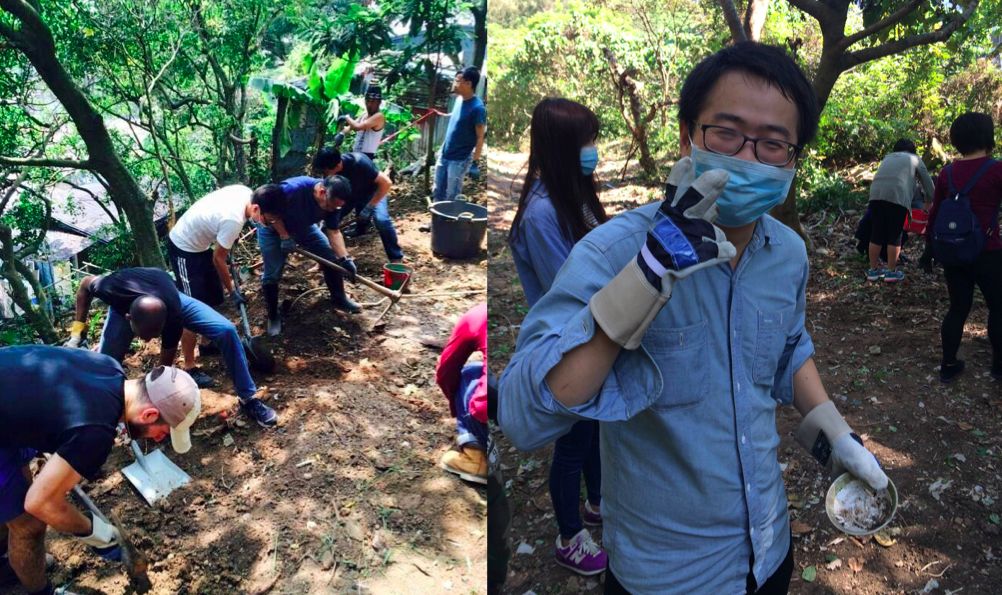
But Mo accused Zhu of not being upfront about his political views. “Zhu is definitely not avoiding politics – he has attended events organised by the group ‘2gather’ multiple times, which has close ties to the DAB [Hong Kong’s largest pro-Beijing party] and was a signatory to the anti-Occupy petition in 2014.”
Mo has asked Zhu to explain his relationship with pro-establishment organisations.
What’s next?
Mo said that he would like to have an open forum before the vote with Zhu and the other candidates to debate on school policies. He said Zhu declined a similar invitation last year on the basis that there was not enough time for preparation.
In response, Zhu said he would be willing to attend the forum, provided that the host of the forum would be a campus member “for the fairness of all candidates,” that all four candidates would be present, and the forum would be held on the weekends as he is busy with research during the week.
As of now, two days before the vote begins, no forum has taken place for the candidates to debate issues in front of the student body.
The election of HKU Council postgraduate representative is scheduled for October 17-21. The other candidates are Samuel Law Sau-wai of the LL.M in Arbitration and Dispute Resolution programme, and Lee Hang-seng of the Masters of Arts in China Development Studies programme.
